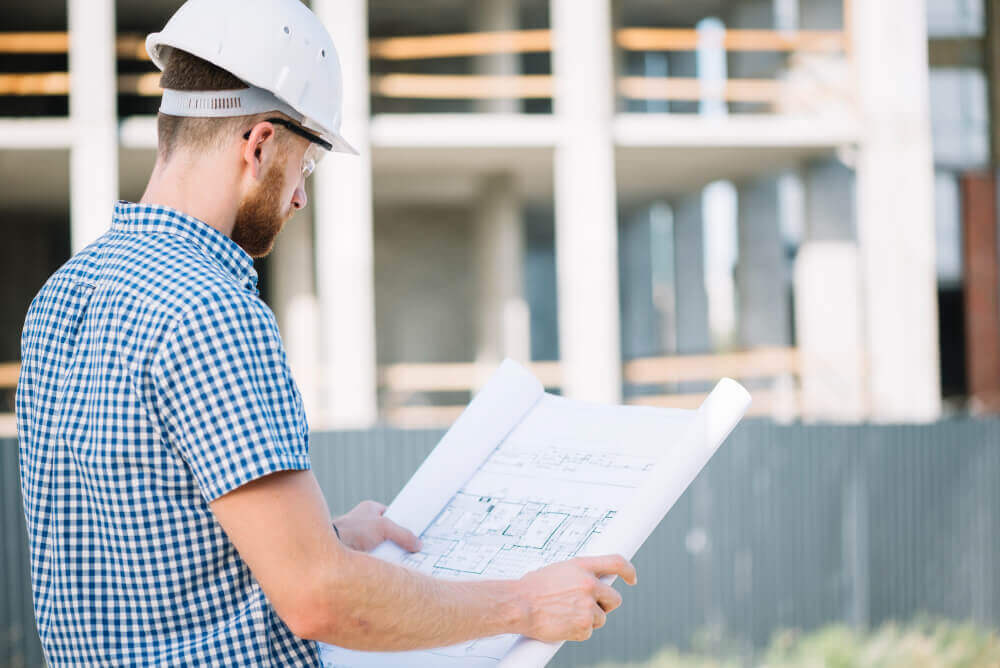Contents
If your offer on a property has been accepted, the next question naturally arises: do you need a professional home survey, and which type should you choose?
When buying a property in the UK, it’s highly recommended to arrange a Home Survey to assess the condition of the property and avoid any unexpected issues after purchase. Each property survey offers a different level of detail and is suitable for different types of homes. Let’s look at the main types of Home Surveys in UK, including valuation options and guidance on how to choose the right one for your situation.
What Is a House Survey in the UK?
A home survey (also known as a house survey) is a professional inspection of a property’s condition carried out by a qualified chartered surveyor. The surveyor checks the building for visible and potential problems — from damp and roof damage to serious structural issues.
The survey report highlights any defects and recommends what needs repairing or further investigation. It also includes expert observations about the property’s materials, structure and overall condition.
Typically, the buyer arranges and pays for the survey after their offer on a property has been accepted. The survey helps ensure there are no unpleasant surprises after you move in.
Mortgage Valuation vs. Home Survey – What’s the Difference?
Mortgage Valuation Is Not the Same as a House Survey! Many first-time buyers assume the mortgage valuation arranged by their lender is the same as a home survey — but it’s not. A mortgage valuation is carried out for the lender, not for you. Its only purpose is to confirm that the property is worth the amount being borrowed and that it provides sufficient security for the mortgage. Mortgage valuations are usually brief and limited. They don’t identify potential repair issues or structural defects.
Some lenders include it for free, while others may charge a small fee (around £100). If you want to understand the true condition of the home, you’ll need to commission an independent RICS Home Survey.

Types of Home Survey in the UK
There are several levels of RICS-approved surveys, each offering a different depth of inspection depending on the property’s age, condition and type.
RICS Basic Valuation Home Survey UK
This is the most basic option — a straightforward valuation to determine the market value of the property. It’s often used for mortgage purposes and does not provide a detailed assessment of the property’s condition.
What it includes:
- A brief inspection of the overall property.
- A market valuation prepared by a certified RICS surveyor.
- No detailed comments about repairs, risks or defects.
Best for: new-build or nearly new homes, or when you only need an up-to-date market valuation rather than a condition report.
RICS Home Survey Level 2 (Homebuyers Report)
The RICS Level 2 Home Survey — also known as the Homebuyers Report — is the most popular option among UK homebuyers. It offers a detailed overview of the property’s condition and highlights visible defects that could affect its value or require repairs.
The report covers the interior and exterior of the property, including issues like: damp, condensation or mould, roofing or guttering problems, plumbing, drainage or heating concerns
When to choose a Level 2 Survey?
- The property appears in reasonable condition.
- You want to identify possible problems before finalising the purchase, without a fully invasive inspection.
- It’s a modern or conventional house, flat, or bungalow.
The Home Survey Level 2 identifies visible defects, but it doesn’t always uncover hidden structural issues. If there are signs or suspicions of more serious underlying problems, a Building Survey (Level 3) is recommended. A Level 2 survey does not provide a full guarantee that there are no hidden defects — it simply highlights potential risks that can be observed during a standard inspection.
Get your Home Survey quote
Enter your details below
RICS Home Survey Level 2 with Valuation
This version includes everything from the standard Level 2 Survey, plus a professional valuation of the property’s market value and rebuild cost (for insurance purposes). This is an intermediate level of property inspection that also includes an independent assessment of the property’s market value and its rebuild cost for insurance purposes. It’s ideal for mid-aged or standard construction homes, where the buyer wants not only to understand the property’s condition but also to evaluate its financial worth.
What Does an RICS Home Survey Level 2 with Valuation Include?
- A full inspection of visible parts of the property.
- Identifying potential risks: damp, mould, roofing issues, plumbing or heating problems.
- Identification of defects and potential risks (e.g. damp, subsidence, roof leaks).
- Recommendations for repairs and maintenance.
- Valuation: an independent assessment of the property’s market value and the insurance rebuild cost — that is, the estimated cost to completely rebuild the home in the event of damage.
Features and Benefits: The RICS Home Survey Level 2 with Valuation helps identify defects while also providing a clear understanding of the property’s actual market value. It offers both a condition report and a valuation, which is why it is often the preferred choice for buyers.

RICS Home Survey Level 3 (Building Survey)
The RICS Level 3 Building Survey is the most comprehensive type of home survey available. It provides a detailed analysis of the property’s structure and condition, highlighting both major and minor issues and explaining the causes, implications, and recommended repairs. Surveyors check every accessible area — from the roof and walls to the foundations, plumbing, electrics, and heating systems. Additional specialist inspections, such as a Structural Engineer’s Report, may also be recommended if there are concerns about structural issues.
When to choose a RICS Home Survey Level 3 (Building Survey):
- The property is old or listed.
- It has an unusual design or non-standard construction.
- You suspect structural or serious hidden defects.
- You want the most detailed understanding of the property’s condition before purchase.
A Level 3 Survey can also suggest when to bring in specialists (for example, a structural engineer or damp expert) if further investigation is needed.
What the report covers:
- Detailed inspection of the property’s structure and all accessible areas.
- Identification of visible and potential structural issues.
- Expert recommendations on repairs, maintenance, and potential costs.
Structural Engineers Report
If a Building Survey uncovers possible structural movement, cracks, or foundation problems, you may need a Structural Engineer’s Report. This is a separate, highly specialised assessment carried out by a qualified structural engineer. The engineer will provide an in-depth analysis of: foundation movement or subsidence, structural cracks in walls or ceilings, roof or load-bearing issues. The report helps determine the severity of the problem and potential repair costs, which can be crucial when deciding whether to proceed with the purchase.
When to choose:
- When there are obvious or suspected structural problems (e.g., cracks in walls, foundation settlement, or roof defects).
- When a thorough analysis of the property’s structural condition is needed.
- This report is essential if an expert assessment of the building’s structural elements is required, along with recommendations for addressing serious issues.
Which Home Survey Should You Choose?
For new-build or nearly new homes, a Level 1 survey or RICS Basic Valuation is usually sufficient.
For standard, mid-aged properties, a Home Survey Level 2 is a good option.
For older homes, properties with potential hidden defects, or if there are serious concerns, it’s better to choose a Home Survey Level 3.
For properties with suspected structural issues, such as cracks or foundation problems, a Structural Engineer’s Report is the most appropriate choice.




